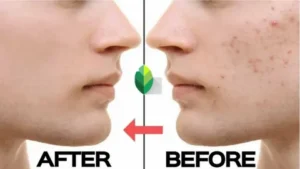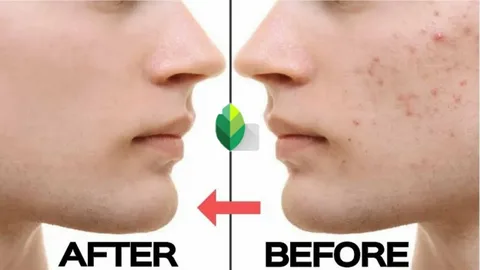5 Top Ways to Treat Acne for Clearer Skin

Acne – it’s something nearly everyone has dealt with at some point. Whether you’re experiencing it for the first time or are dealing with ongoing flare-ups, acne can be frustrating, not to mention the impact it has on your confidence. You want clear skin, but figuring out how to achieve it can feel overwhelming. With so many products and methods available, it can be hard to know where to start.
But don’t worry! This guide will walk you through five top ways to treat acne that will help you get the clearer skin you’ve always wanted. From skincare routines to professional treatments, we’ll break it down step-by-step. Ready to tackle acne once and for all? Let’s get started.
What Causes Acne? Understanding the Basics
Before diving into the treatments, it’s helpful to understand what causes acne in the first place. Acne is a skin condition that occurs when hair follicles are clogged with oil, dead skin cells, and bacteria. These clogged pores lead to the formation of pimples, blackheads, or cysts. Several factors contribute to the development of acne:
-
Excess Oil Production: Your skin naturally produces oil (sebum) to keep it moisturized. However, when too much oil is produced, it can clog pores and lead to acne.
-
Bacterial Growth: Propionibacterium acnes (P. acnes) is a bacteria that lives on your skin and thrives in clogged pores. When these bacteria multiply, it can lead to inflammation and acne.
-
Hormones: Hormonal changes, such as those experienced during puberty, menstruation, or pregnancy, can increase oil production and contribute to acne breakouts.
-
Diet and Lifestyle: Certain foods, like high-glycemic foods, dairy, or sugary snacks, can worsen acne in some people. Stress can also trigger breakouts by causing hormone imbalances.
By understanding these causes, you can better address the root of your acne and choose treatments that tackle the problem effectively.
1. Topical Treatments for Acne: The First Line of Defense
When it comes to treating acne, topical treatments are often the first step. These are products applied directly to the skin to help manage acne symptoms and prevent future breakouts. They come in many forms: creams, gels, and even cleansers.
The Best Topical Treatments for Acne
-
Benzoyl Peroxide: Benzoyl peroxide is one of the most common and effective ingredients for treating acne. It works by killing acne-causing bacteria and reducing inflammation in the skin. It’s available in various concentrations, so you can choose the strength that works best for your skin type.
-
Salicylic Acid: This beta hydroxy acid (BHA) helps exfoliate the skin, preventing pores from becoming clogged. It also has anti-inflammatory properties, making it great for treating both mild and moderate acne.
-
Retinoids: Retinoids, such as tretinoin or adapalene, are derivatives of Vitamin A that speed up cell turnover. By increasing the rate at which skin cells shed, they help prevent clogged pores and reduce the appearance of acne scars.
-
Tea Tree Oil: Tea tree oil has natural antibacterial properties and can help fight acne-causing bacteria. It’s a great natural option for people looking for a gentler treatment.
Tip: Start with a lower concentration of benzoyl peroxide or salicylic acid to avoid irritation, and gradually increase it as your skin builds tolerance.
2. Proper Skincare Routine: Cleanse, Tone, and Moisturize
When it comes to managing acne, consistency is key. A good skincare routine can go a long way in preventing breakouts and keeping your skin healthy. Here’s a simple yet effective routine to follow:
Step 1: Cleanse
Cleansing your skin twice a day removes dirt, excess oil, and impurities that can contribute to acne. Use a gentle cleanser that suits your skin type—whether oily, dry, or combination. Avoid harsh cleansers that can strip your skin of its natural oils, as this can lead to dryness and irritation, which may worsen acne.
Step 2: Tone
Toners help balance your skin’s pH levels and remove any remaining impurities after cleansing. Look for toners with soothing ingredients like witch hazel or chamomile, as these can calm inflammation without drying out the skin.
Step 3: Moisturize
Even oily skin needs moisture. Look for a lightweight, oil-free moisturizer that hydrates without clogging pores. Moisturizing helps maintain a healthy skin barrier, which is essential for keeping acne under control.
Tip: Always apply your acne treatments (like benzoyl peroxide or salicylic acid) before moisturizing to ensure they penetrate effectively.
3. Dietary Changes: What You Eat Affects Your Skin
What you eat plays a significant role in your skin’s health. While there’s no definitive “acne diet,” certain foods can either worsen or help clear up your skin.
Foods That May Worsen Acne
-
High-Glycemic Foods: Foods like white bread, sugary snacks, and soda can cause a spike in blood sugar, which can lead to increased oil production and inflammation.
-
Dairy Products: Some studies suggest that dairy products, particularly milk, can be linked to acne. If you find dairy triggers your breakouts, consider cutting back or switching to dairy alternatives.
Foods That May Help with Acne
-
Antioxidant-Rich Foods: Foods like berries, leafy greens, and nuts are packed with antioxidants that help reduce inflammation and support skin health.
-
Omega-3 Fatty Acids: Foods rich in omega-3s, such as salmon, walnuts, and flaxseeds, have anti-inflammatory properties that can help reduce acne flare-ups.
-
Zinc: Zinc is an essential mineral that helps regulate oil production and reduce inflammation. Foods like pumpkin seeds, chickpeas, and lentils are great sources of zinc.
Tip: Try to maintain a balanced diet with plenty of whole foods while limiting processed sugars and dairy to see if it has a positive impact on your acne.
4. Professional Treatments: For More Severe Acne
If over-the-counter treatments and skincare routines aren’t providing the results you need, professional treatments can offer more intensive solutions. These treatments are performed by dermatologists and skincare professionals who can provide personalized care based on your skin’s needs.
Common Professional Acne Treatments
-
Chemical Peels: Chemical peels use strong acids to exfoliate the skin, unclog pores, and reduce acne scars. They’re effective for treating both active acne and acne marks left behind.
-
Laser Therapy: Laser treatments, such as fractional CO2 lasers, target the deeper layers of the skin to reduce acne and improve skin texture. These treatments can also reduce the appearance of scars caused by acne.
-
Microdermabrasion: This procedure involves a physical exfoliation to remove dead skin cells and unclog pores. It’s often recommended for individuals with mild acne or those looking to improve skin texture after acne healing.
-
Steroid Injections: For cystic acne, dermatologists may inject steroids directly into the cysts to reduce inflammation and speed up healing. This can provide quick relief for painful acne lesions.
Tip: If you’re considering professional treatments, always consult with a dermatologist to find the best solution for your specific skin type and acne severity.
5. Lifestyle Habits: Stress Management and Sleep
Stress can trigger acne flare-ups, and poor sleep can slow down the body’s healing process. By improving your lifestyle habits, you can help keep your skin clear.
Stress Management
Chronic stress can increase hormone production, particularly cortisol, which can lead to more oil production and acne. Incorporating stress-reducing activities, such as yoga, meditation, or even a daily walk, can significantly help manage acne flare-ups.
Getting Enough Sleep
When you don’t get enough sleep, your body’s ability to heal and regenerate skin cells is compromised. Aim for 7-9 hours of sleep each night to allow your skin to repair itself and maintain a healthy balance.
Tip: If you’re prone to stress-related acne, consider practicing mindfulness or deep-breathing exercises to help reduce anxiety levels and promote clear skin.
Conclusion: Achieving Clear Skin
Getting clearer skin doesn’t happen overnight, but with a combination of proper skincare, dietary changes, professional treatments, and lifestyle adjustments, you can significantly improve your skin’s health. Remember, everyone’s skin is different, so it’s important to find the right routine that works for you. Be patient with your skin, stay consistent, and soon enough, you’ll be on your way to achieving that glowing, acne-free complexion.
FAQs About Acne Treatment
1. How long will it take to see results from acne treatments?
It typically takes 4-6 weeks to notice improvements, especially with topical treatments. Professional treatments like chemical peels or laser therapy may provide faster results, but they often require multiple sessions.
2. Can acne be cured completely?
While acne can’t always be completely “cured,” it can be effectively managed with the right treatments. Many people can achieve clear skin with consistent care and appropriate treatment.
3. Are there any natural remedies for acne?
Yes, natural remedies like tea tree oil, honey, and green tea have been shown to have acne-fighting properties. However, results may vary, and natural remedies are often best used in conjunction with other treatments.
4. Should I wash my face more if I have acne?
Washing your face too often can irritate your skin and make acne worse. Stick to washing your face twice a day with a gentle cleanser to remove dirt and excess oil without stripping your skin.
5. Can stress really cause acne?
Yes, stress can trigger acne flare-ups by increasing cortisol levels, which boosts oil production in the skin. Managing stress through relaxation techniques can help reduce breakouts.


